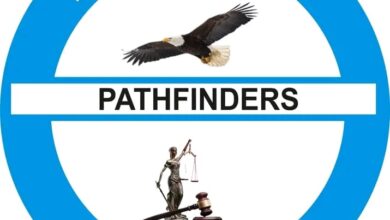FG Plans Tax Overhaul To Access $750m World Bank Loan

The Federal Government is pressing ahead with critical tax reforms not just to boost tax revenue and efficiency but also to meet the requirements for a $750m loan from the World Bank, The Courage.
This loan project is a part of the broader $2.25bn approved by the World Bank for Nigeria on June 13, 2024, to bolster Nigeria’s economic stability and support its vulnerable populations.
The other second part of the loan package was for the Nigeria Reforms for Economic Stabilisation to Enable Transformation, Development Policy Financing Programme project.
For the second loan, was earlier reported that the Federal Government had obtained $751.88m out of the approved $1.5bn so far.
However, there has yet to be a disbursement for the first loan of $750m. Disbursement for the first loan is tied to specific fiscal and governance conditions under the Accelerating Resource Mobilisation Reforms programme.
The ARMOR programme includes three main result areas: implementing tax and excise reforms to increase Value-Added Tax collections and excise rates on health and environmentally friendly products; strengthening tax and customs administrations to enhance VAT compliance and audit effectiveness; and safeguarding oil and gas revenues by increasing transparency and net revenue contributions.
A copy of the signed loan agreement between Nigeria (through the Ministry of Finance) and the World Bank on Sunday.
The agreement document read in part, “The bank agrees to lend to the borrower the amount of $750,000,000 as such amount may be converted from time to time through a currency conversion (“Loan”), to assist in financing the programme described in Part 1 of Schedule 1 to this Agreement (“Programme”) and the project described in Part 2 of Schedule 1 to this Agreement (“Project”, and together with the Programme, hereinafter jointly referred to as the “Operation”).
“The borrower may withdraw the proceeds of the loan in accordance with Section IV of Schedule 2 to this Agreement. All withdrawals from the loan account shall be deposited by the Bank into an account specified by the Borrower and acceptable to the bank.”
According to the Disbursement Linked Indicators set out in the loan agreement, the loan will only be released upon achieving measurable progress in key areas.
These include raising VAT collection through improved regulations, increasing excise taxes on health and environmental products, and boosting corporate tax compliance through enhanced digital infrastructure.
Central to the ARMOR programme is the government’s plan to increase VAT rates and expand taxpayer compliance.
Some of the loan targets include increasing VAT collections to 1.8 per cent of non-oil Gross Domestic Product, unlocking $105m of the loan.
Also, there is a target to register 660,000 VAT filers, which will release $30m from the loan.
An e-invoicing system for VAT traders, once launched, will trigger $20m, with an additional $45m upon 30 per cent trader adoption.
In an effort to boost VAT revenue, the Federal Government is considering a bill proposing an increase in the VAT from 7.5 per cent to 10 per cent by 2025.
VAT refers to a consumption tax on goods and services levied at each stage of the supply chain where value is added.
In the executive bill seen online, the legislature also intends to increase the VAT to 12.5 per cent by 2026 through 2029.
“VAT shall be charged on the value of all taxable supplies at the following rates (a) 2025 year of assessment 10 per cent; (b) 2026, 2027 2028, and 2029 years of assessment 12.5 per cent (c) 2030 year of assessment and thereafter 15 per cent,” the document reads.
Also, a copy of the Stakeholder Engagement Plan for Nigeria – Accelerating Resource Mobilisation Reforms programme dated March 2024 showed that the government is required to reintroduce the excises on telecom services, EMT levy on electronic money transfers through the Nigerian Banking System among other taxes.
Further findings also showed that one of the tax bills at the National Assembly included this excise tax.
The Federal Government has proposed a five per cent excise duty on telecommunications services, gaming, and betting activities as part of a new bill to overhaul Nigeria’s tax framework.
The bill, titled “A Bill for an Act to Repeal Certain Acts on Taxation and Consolidate the Legal Frameworks relating to Taxation and Enact the Nigeria Tax Act to Provide for Taxation of Income, Transactions, and Instruments, and Related Matters,” was dated October 4, 2024.
An analysis of the proposed legislation showed that it seeks to introduce excise duties on services such as telecoms, gaming, gambling, lotteries, and betting provided in Nigeria.
Also, the program outlines specific allocations for technical assistance, with $5m each going to the Federal Inland Revenue Service and the Nigeria Customs Service to support their capacity to implement these new measures effectively.
This includes the development of systems for better data sharing, risk-based audits, and compliance processes, as well as substantial investments in program management and capacity building.
There will also be $10m for project management, tax policy capacity-building and other expenses.
In total, the amount makes the $20m investment financing before the release of $730m in line with fiscal targets met.
The FIRS will receive $5m to develop and implement critical initiatives aimed at enhancing its operations and revenue collection capabilities.
This funding will support the development and implementation of a robust third-party data sharing platform, along with administrative control programs to streamline operations and enhance efficiency.
Also, the FIRS will develop a VAT lottery system and an e-invoicing system, both of which rely heavily on advanced software and extensive communication planning. These systems are designed to boost VAT collections and improve compliance among taxpayers.
The funding will facilitate the creation of a risk-based audit assessment program for VAT and Corporate Income Tax, aimed at enhancing the effectiveness and efficiency of audit processes within the agency.
Similarly, the NCS will receive $5m to enhance its administrative processes and improve compliance.
This funding will be used to design and implement new administrative processes, including the establishment of sanctions for non-compliance with excise rules.
The NCS will also develop centralised control room systems equipped with backup and disaster recovery capabilities, ensuring operational continuity and resilience in case of emergencies.
Moreover, the funding will support capacity-building initiatives, enabling the NCS to effectively manage and implement these new systems and processes, ultimately leading to improved compliance and operational efficiency.
The loan also focuses on customs reforms to improve trade compliance and increase revenue.
Directing 15 per cent of cargo through the Green Channel will unlock $35m, while a compliant trader programme under the Authorized Economic Operator framework is linked to $15m.
Other loan-linked targets include reducing tax expenditures by eliminating corporate bond interest exemptions and rationalising the Pioneer Status Industry Tax Incentive scheme by the end of 2024, each unlocking $10m.
Also, excise taxes on health-related products and environmentally harmful goods will increase. A presidential order to introduce these excises will trigger $10m, with an additional $30m if revenue from green taxes reaches 0.2 per cent of non-oil GDP.
The Federal Government recently inaugurated a Joint Committee of staff of the Nigerian Investment Promotion Commission and FIRS to review the current guidelines for the administration of the PSI, validate the cost of the incentive to Nigeria, and recommend changes to the qualification and administration.
The Taiwo Oyedele-led Presidential Committee on Fiscal Policy and Tax Reforms plans to replace the abused pioneer status with priority sector incentives, rewarding companies based on their investments in the economy.
Also, in one of the executive bills, the Federal Government plans to introduce an Economic Development Incentive Certificate as a tax incentive for companies investing in capital projects.
As outlined in the bill, firms seeking the certificate must submit their applications through the Nigerian Investment Promotion Commission, accompanied by a non-refundable fee of 0.1 per cent of the capital expenditure, capped at N5m.
The NIPC will review and recommend the applications to the Minister for approval, after which the Minister may forward the recommendation to the President.
A part of the bill read, “The application shall be accompanied by a non-refundable fee of 0.1% of the qualifying capital expenditure incurred or to be incurred, subject to a maximum of N5,000,000.00 and no further fee shall be payable in respect of such application.
“The NIPC shall recommend the application to the Minister, for approval or otherwise, including the projected tax expenditure impact report in its recommendation.”
The tax bill noted that approval from the President is mandatory before the certificate is issued.
Once granted, the NIPC is required to submit an annual report detailing the sectors and companies that benefited from the scheme to the Minister, who must present the report to the President and the National Economic Council within 30 days.



